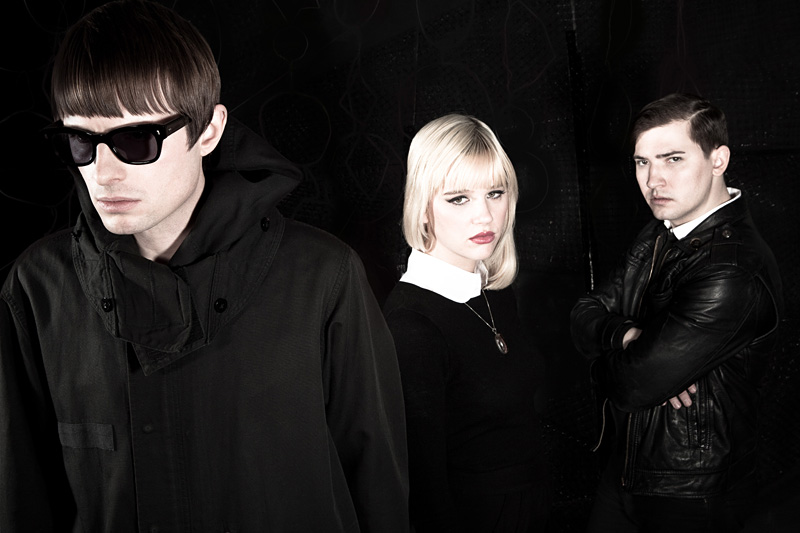There’s just something primordially appealing about wearing all black and wallowing in one’s sadness, isn’t there? Over the past few years, indie rock has seen a minor explosion of gothically inclined bands, from SALEM’s druggy witch-house slurring to Abe Vigoda’s recent day-to-night makeover from tropical punk outfit to gloomy new-wavers. Stereogum even published a list of “18 Dark Bands to Watch in 2011,” and chose to exclude the above bands because they were the too-obvious tips of the black iceberg. Also left off the list was arguably the best of the bunch, Brooklyn’s Cold Cave.
As in Abe Vigoda’s conversion, Cold Cave’s members all found their way to the dark side from other musical spheres. Wesley Eisold founded Cold Cave following stints fronting hardcore bands such as American Nightmare and Some Girls (and acting as unwitting ghostwriter for Fall Out Boy’s Infinity on High). Joining him was Dominick Fernow, also known as longtime noise artist Prurient. 2009’s breakout Love Comes Close featured Caralee McElroy, formerly of indie experimentalists Xiu Xiu, on keys and vocals; she’s since been replaced by Jennifer Clavin, who comes to the band from bright L.A. grrrl punks Mika Miko.
That so many people from such diverse musical backgrounds would all be attracted to darker sounds right now perhaps suggests some larger shift in indie rock’s overall mood; that all the above talent would funnel through Cold Cave’s particular take on the stuff speaks volumes about the band’s vision.
In the span of just a few years, Cold Cave has transformed from an obscure, cassette-releasing, sub-industrial noise outfit into a surprisingly glossy and ambitious pop band. Throughout, they’ve retained a singularly dark, romantically hopeless worldview, which has found its boldest expression yet on their latest album, Cherish the Light Years.
Love Comes Close established Cold Cave as legitimate heirs to the legacies of original new-wave mopes New Order and Depeche Mode. Cherish explodes that album’s sometimes-hermetic catchiness to unexpectedly wide-screen proportions, right from the first ultra-compressed guitar blast and sobbing, upward-soaring chorus of opener “The Great Pan Is Dead.” Their palette of synths and drum machines has opened up to incorporate increasing amounts of guitar and other instruments (even a horn section on “Alchemy and You”), and Eisold has gone from singing in a glum almost-monotone to really wailing and emoting.
Lyrically, too, Eisold (who also runs a publishing concern) is in fine form. On “Underworld USA,” over gritty bass-synth arpeggios he engages in Gore/Gahan-worthy blasphemous humor: “They say the meek shall inherit the Earth/Oh, God, that sounds like so much work.” Against the crystalline synth melody of “Confetti,” maybe the album’s single best song, he wavers from good old-fashioned self-loathing (“I feel guilty for being alive/When so many beautiful people have died”) to sexy/scary come-ons (“Oh I’m coming/Oh I’m coming/When you see me, you should run and hide”) to something more complicated, a kind of simmering dissatisfaction with superficial pleasures (“You look so good on the outside/I feel so good on the outside”). It is a massive tune.
This brash, expansive material may rightly alienate some Cold Cave fans who would prefer them a little more brooding and dark-corners, a little less epic and strobe-lights. But Cold Cave’s talents are equal to their ambitions here. And, really, if you’re going to go in for this sort of thing, why not go totally over-the-top?
Goth is back, and it never sounded so good.






